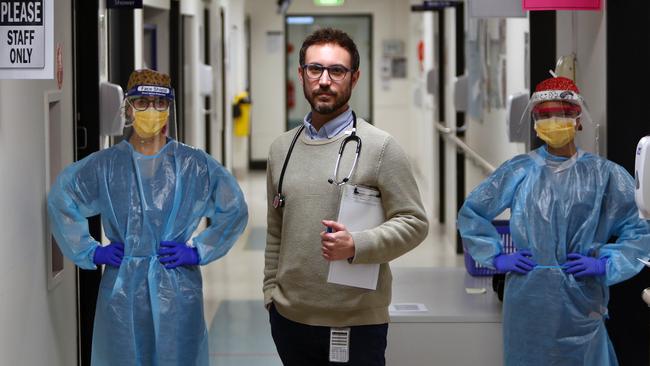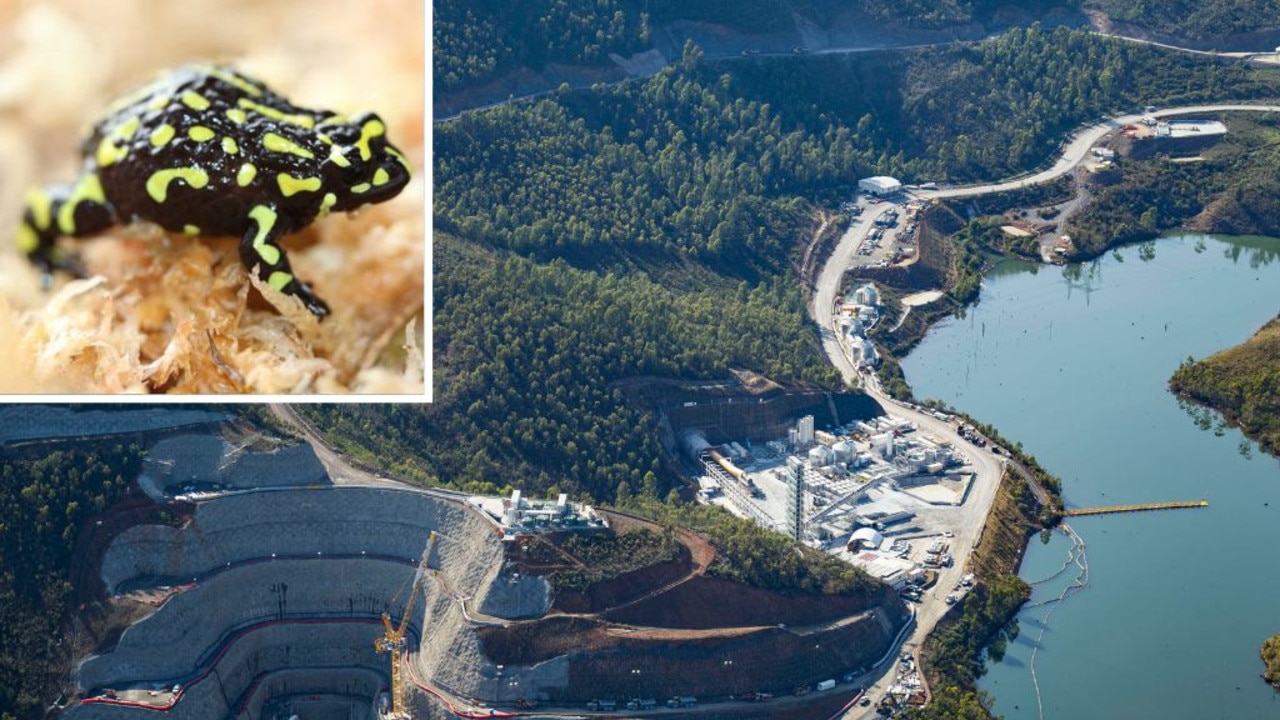Coronavirus Australia: Clinical trial of healthcare workers will test benefits of ‘Donald Trump’s drug’
More than 2000 healthcare workers set for hydroxychloroquine trial to test if it can prevent COVID-19.

Doctors and nurses from hospitals around the country are being asked to volunteer to take the controversial drug hydroxychloroquine in a clinical trial that will test whether the antimalarial pharmaceutical can prevent healthcare workers catching COVID-19.
More than 2000 healthcare workers will be recruited for the “gold standard” clinical trial, which aims to test whether hydroxychloroquine — which US President Donald Trump has revealed he is taking as a preventive drug — can inhibit the coronavirus replicating in the human body.
Mr Trump, who was potentially exposed to COVID-19 after two White House aides tested positive, said he had been taking hydroxychloroquine, which he has touted as a “miracle drug”, for two weeks. The President is taking the drug against the advice of the US Food and Drug Administration.
“You’d be surprised at how many people are taking it … the frontline workers — many, many are taking it,” Mr Trump said.
“I happen to be taking it. I happen to be taking it. I’m taking it, hydroxychloroquine. Right now, yeah. A couple weeks ago I started taking it. Because I think it’s good, I heard a lot of good stories … I take a pill every day.”
Hydroxychloroquine is widely used in the treatment of the auto-immune diseases rheumatoid arthritis and lupus. While regulators warn it should not be used for COVID-19 outside of the context of a clinical trial, mining magnate Clive Palmer has imported millions of doses of the drug into Australia.
Several recent international studies have cast doubt on the effectiveness of hydroxychloroquine in treating COVID-19, and some have even linked it with a higher rate of death from the disease. But researchers stress those studies have not been randomised, double-blinded clinical trials, described as the “gold standard” in which to test a drug’s efficacy.
Marc Pelligrini, joint head of infectious diseases and immune defence at the Walter and Eliza Hall Institute in Melbourne, said the drug had been shown over 50 years to be safe for ongoing use provided people did not have pre-existing heart problems.
All the healthcare worker participants in the clinical trial will be screened and only fit, healthy people with no medical issues will be able to take part. The trial happens at the same time as researchers from Melbourne’s Doherty Institute are testing whether hydroxychloroquine is effective in treating COVID-19 in hospital patients.
Professor Pelligrini said hydroxychloroquine had been shown to inhibit the replication of COVID-19 in test-tube studies. Half of all volunteers in the Walter and Eliza Hall trial will be given hydroxychloroquine, and half will take a placebo. “It’s not exactly clear how the drug works, but it’s thought to interfere with the ability of the virus to multiply,” he said.
“So we think that the best place for this drug is as a preventative rather than to try and treat people who have already got the disease.
“Right now, I suppose we’ve almost let our guard down a little bit in terms of the expectation of people coming along with COVID-19.
“I think we would be mistaken to say that Australia is no longer at risk, and very mistaken to say that healthcare workers are no longer at risk.”
Royal Melbourne Hospital infectious diseases physician Steve Muhi said he expected many doctors and nurses would be keen to sign up. “I think there is almost a social responsibility that they feel. They feel they have to do everything they can to contribute to the research that helps us understand ways that we can protect healthcare workers and our patients,” Dr Muhi said.
Rheumatologist from the Royal Melbourne Hospital, Ian Wicks, who is also a lead investigator on the trial, said he was confident of the safety of hydroxychloroquine administered as part of a clinical trial. “We think it’s reasonable to evaluate it, given its in-vitro results against the virus and given its safety record in treating humans with auto-immune disease,” he said.




To join the conversation, please log in. Don't have an account? Register
Join the conversation, you are commenting as Logout